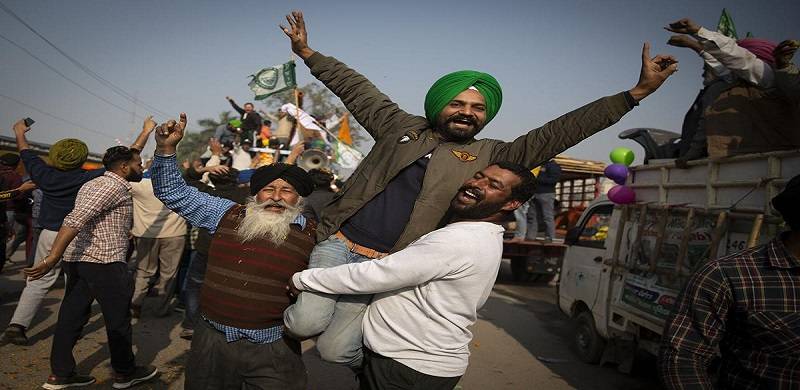
India’s farmers have ended a year-long protest against the government’s agricultural reforms as Prime Minister Narendra Modi announced that he would repeal the controversial legislation.
Last month, the government repealed the three laws that farmers claimed would have allowed the private firms to dictate terms in the agricultural market.
For almost a year thousands of farmers had been protesting against the laws, which posed a significant challenge to the Modi government.
In addition to repealing the laws, the government has also promised to fix a minimum price for crops and to stop prosecuting farmers for burning crop stubble. The government also said that it would not initiate legal proceedings against the protesting farmers and would pay compensation to families of those who had died during the protest.
Earlier, in September last year, the Indian parliament had passed three laws aimed at deregulating farm produce markets from state control and allowing private companies to enter the sector.
Farmers began the protest saying that the laws gave too much leverage to big companies who would now exploit them.
Protests initially started in Punjab and Haryana before the farmers marched in New Dehli. Stringent force was used by the police to stop the protesters, which led to instances of violent clashes.
Last month, the government repealed the three laws that farmers claimed would have allowed the private firms to dictate terms in the agricultural market.
For almost a year thousands of farmers had been protesting against the laws, which posed a significant challenge to the Modi government.
In addition to repealing the laws, the government has also promised to fix a minimum price for crops and to stop prosecuting farmers for burning crop stubble. The government also said that it would not initiate legal proceedings against the protesting farmers and would pay compensation to families of those who had died during the protest.
Earlier, in September last year, the Indian parliament had passed three laws aimed at deregulating farm produce markets from state control and allowing private companies to enter the sector.
Farmers began the protest saying that the laws gave too much leverage to big companies who would now exploit them.
Protests initially started in Punjab and Haryana before the farmers marched in New Dehli. Stringent force was used by the police to stop the protesters, which led to instances of violent clashes.

